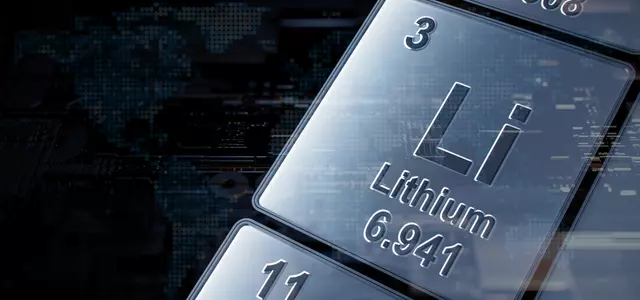
This article originally ran on Forbes.com on February 21, 2023. All rights reserved.
Daniel B. Markind is a Forbes.com energy column contributor. The views expressed in this article are not to be associated with the views of Flaster Greenberg PC.
While most of the United States was transfixed by the story of a Chinese reconnaissance balloon flying over much of the country, a story involving Communist China with more far-reaching implications was occurring one continent to the south.
On January 20, the Bolivian Ministry of Hydrocarbons and Energy announced that it had chosen a Chinese consortium led by the giant lithium-ion battery manufacturer, Contemporary Amperex Technology, to invest over $1B for the purposes of developing Bolivia’s lithium deposits, with the goal of developing lithium-ion batteries in that South American nation by 2025.
The importance of this for the future of the world and the United States economies, not to mention the world-wide commitment to development of “green” energy technologies, cannot be overstated. According to the US Geological Survey, Bolivia has the largest lithium deposits in the world, at an estimated 21 million tons. This constitutes nearly one quarter of the world's known lithium. China will now gain control over that. In addition, China already produces over 75% of all lithium-ion batteries in the global market. China thus will be receiving vertical integration in the form of a world-wide monopoly over this critical resource. China will not only obtain control over most of the indispensable source material used in the manufacture of batteries necessary to make clean energy a reality, but it will also manufacture most of the batteries themselves that are the key to making that energy viable.
None of this will happen overnight, of course. While Bolivian President Luis Arce set the goal of commercial development and export of lithium batteries from Bolivia in the first quarter of 2025, significant domestic hurdles in that country will remain. Despite having such enormous untapped reserves, Bolivia currently is an afterthought when it comes to lithium production, at only 543 tons a year. This is compared to the present world leader, Australia, which now produces over 50% of world lithium at 55,000 tons per year. In addition, previous attempts in Bolivia to mine the country’s Oruro and Uyuni lithium fields have met with substantial local opposition, which opposition may not go away easily. Bolivia’s Mining Law and Law for the Creation of Bolivian Lithium Deposits contain provisions protecting the government’s right to develop these resources, but previous attempts to develop them have faced steep anti-mining sentiment in the country. Many of Bolivia’s residents believe that the mining could literally destroy the local population’s traditional way of life.
Physically speaking, lithium mining in Bolivia is also quite difficult – more so than in Australia or other lithium mining locations. Specifically, the lithium located in the “Lithium Triangle” of South America, encompassing southern Bolivia, northern Chile, and northeast Argentina, lies in salt flats surrounded by Andean farming communities. Some of these communities are populated by indigenous people who struggle to maintain their rights against the respective national governments.
The process itself is also fraught with environmental issues. The lithium is not separate or "pure,” but is instead mixed with many other unwanted minerals, such as magnesium and boron. Companies thus have to extract the minerals and then separate them. Historically, the mining process began by sucking up the slimy brine which lies underneath the massive salt flats and letting the sun evaporate away the water to leave condensed minerals. However, this process is not fast or especially efficient and can take more than a year to be completed. The sucking out of the lithium also requires large amounts of water, which in turn creates difficult and expensive storage, contamination, and disposal issues for an essential human resource (clean water) that is otherwise naturally scarce in the region. Further, sunlight is not consistent in that part of Bolivia either, causing more potential disruption to the mining and extraction process. Then, the remaining minerals have to be separated from the unwanted elements, a notoriously difficult process that involves techniques of questionable environmental propriety, if not risks of dangerous pollution for members of the traditional local populace and their crops and animals.
Now, Bolivia is looking to new technologies known as “DLE,” or “Direct Lithium Extraction.” This involves adding chemicals to the brine to speed up the extraction process and replacing the remaining brine. However, to date, this new technology has been tried only in Arkansas and in Argentina, where the results have not (yet) been published.
If successful, Bolivia can catapult itself into a major player on the world economic stage, almost overnight. At the same time, local Bolivians hope the state lithium corporation, known as “YLB,” will take as much care of the environment as it does trying to increase the lithium for export. To date, that has not been the case. If, however, the South American country can be successful with its Chinese partner, then there will be more lithium available world-wide to build the batteries that we need for greater storage of electricity to be produced by so-called “green” technologies like solar, wind, and other sustainable technologies. However, and at the same time, Bolivia’s lithium deposits will be under tighter control of the Chinese government, whose future plans for controlling this important element and its use in batteries remain very opaque at this time.

